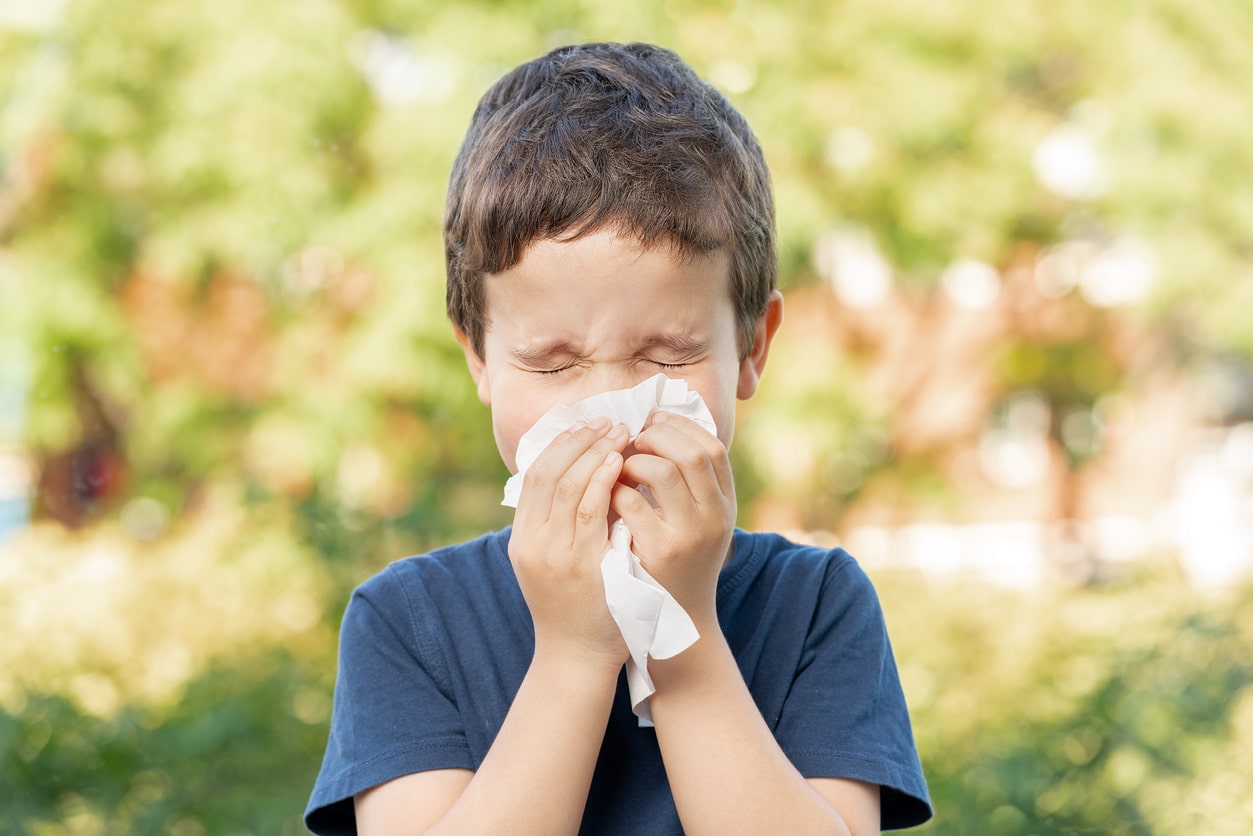Allergies in children are common—nearly 20% of children have seasonal allergies, and almost 6% have a food allergy—but it’s hard to see your child slowed down by their allergies. Since their bodies are still growing, their allergies take time to develop and can even change over the years. As a parent, you may wonder if your child’s seasonal allergies are worsening, and if so, what to do about it.

How Can I Tell Allergies Are Getting Worse?
If your child’s allergies are getting worse, new symptoms may appear, or their existing symptoms might get more severe. For example, your child may have always experienced sneezing and nasal congestion, but lately the conditions haven’t been improving with your usual decongestant. Or perhaps they exhibit fatigue or irritability this year and didn’t before.
These changes may be gradual, making them easy to overlook at first. Watch out for changes in symptoms like:
- Skin conditions like eczema, rashes or hives
- Persistently runny nose or stuffy nose
- Breathing difficulties or wheezing
- Itchy, watery eyes
- Lingering cough
- Fatigue or trouble with concentration
- Stomachache or nausea
Keep a record of symptoms, their severity and what triggered them so you can watch for differences over time.
What Should I Do?
If your child is experiencing several of the symptoms listed above, they can start impacting your child’s quality of life. It’s a good idea to make an appointment with an allergist to create a treatment plan that gets your child back on their feet. Some possible treatment options include:
- Home environment adjustment, from closing windows to using air purifiers to keep allergens out of the house
- Over-the-counter medications like antihistamines, nasal corticosteroid sprays, decongestants, eye drops or cough drops
- Pediatric sublingual immunotherapy, or SLIT, which is an increasingly popular oral allergy treatment that builds the body’s tolerance to a specific allergen, making the immune system less sensitive to it
- Teaching your child to wash their hands or even shower after playing outside
Also, make sure to inform your child’s school of any allergies and discuss with them any necessary treatments or medications in case of an emergency.
Managing your child’s allergy symptoms sets them up for a healthy, full life. Willamette ENT & Facial Plastic Surgery is passionate about allergy management. Call us for more information or to make an appointment with our highly trained allergy staff.
“Have always found the staff and doctors here to be helpful. This was my first visit with Dr. Prze after Dr. Allan retired, and he was very friendly, enthusiastic, and thorough. It was obvious he had read my chart carefully before my checkup.”